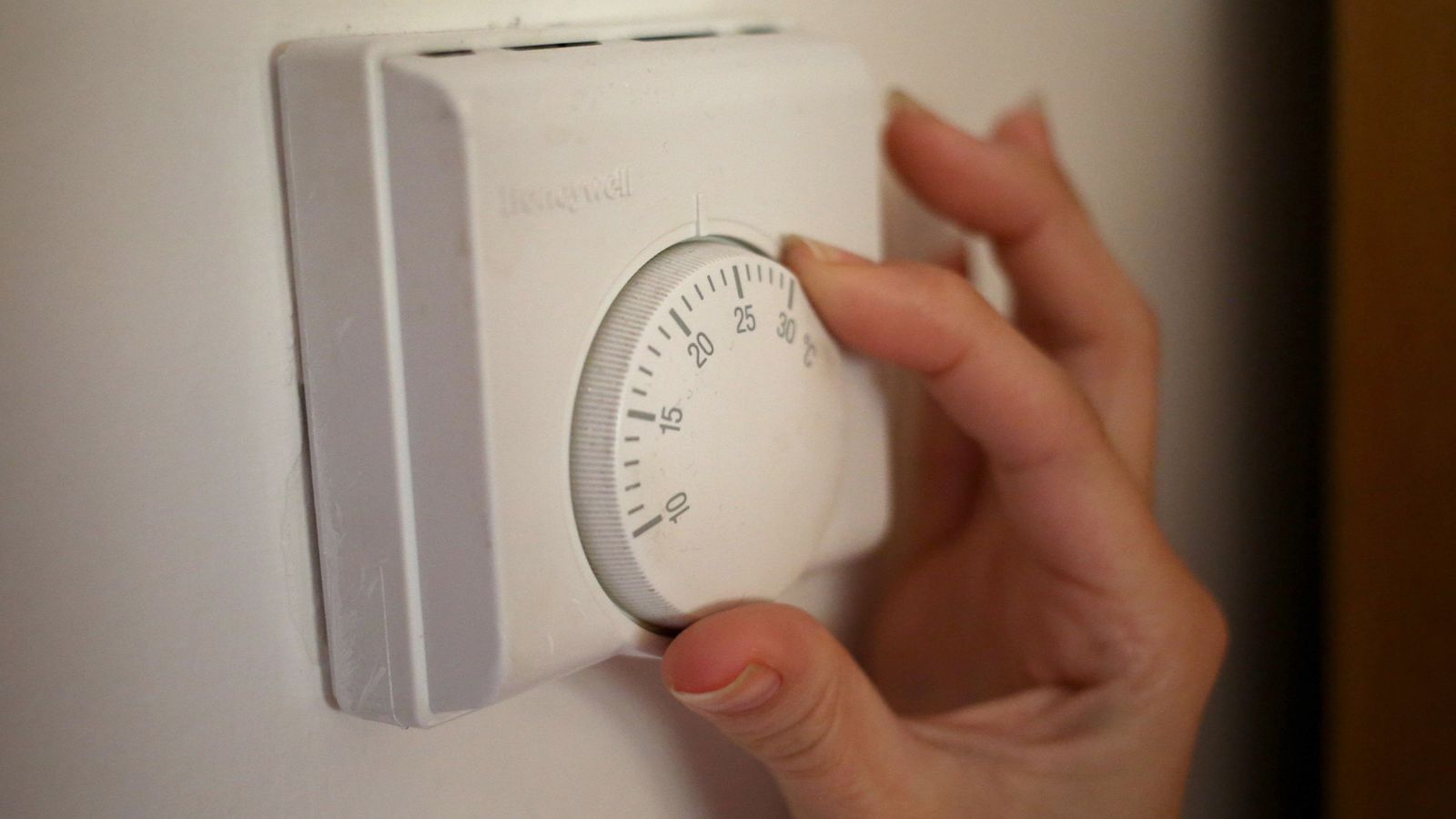The record high prices suppliers are paying alongside shortfalls in gas supply across Europe have sparked concerns that the UK could face an energy crisis this winter.
Wholesale prices for gas have increased 250% since the start of the year, and there has been a 70% rise since August.
The rise has been put down to a number of factors, including a cold winter leaving stocks depleted, high demand for liquefied natural gas from Asia and a drop in supplies from Russia.
Consumers are protected from sudden price hikes by the energy price cap, but this puts pressure on suppliers as they cannot pass on the increase in wholesale gas prices to customers.
A growing list of industry players have found themselves unable to weather surging wholesale prices.
In total, more than 1.7 million customers have found their energy supplier switched as a result of the Ofgem-run SOLR process, with large players including Centrica’s British Gas, EDF Energy and Octopus Energy all picking up customers in this way.
Among the companies which have collapsed have been Avro Energy, Igloo Energy, Utility Point and Green Energy.
Boris Johnson appoints ex-Tesco boss as ‘expert supply chain adviser’ to ease crisis
James Brokenshire death: Conservative MP and former cabinet minister dies aged 53
Foodbank fundraising pages launched after senior Tory MP Sir Peter Bottomley called his £81k salary ‘really grim’ on day of Universal Credit cut
With fears more firms could follow, Business Secretary Kwasi Kwarteng held talks with industry leaders last week, and ministers and officials are set to continue speaking with businesses on Monday and throughout the week.
The government is facing demands for “immediate action” to protect firms from rising costs, but what are the possible measures that could be taken?
Does industry want sector-wide subsidies?
Sky News understands that after Mr Kwarteng saying he is listening to the sector’s concerns, the business secretary has made a formal request to the Treasury for support to industries hit by high energy prices.
The chairman of the Energy Intensive Users Group (EIUG) had said a package of measures to tackle rising energy costs is needed “right now”.
In a statement, the group said it wants the government to consider winter cost containment measures, to look at network costs and to keep emergency measures to try and prevent lasting damage to expensive plants and equipment if any energy intensive plants need to shut down rapidly under review.
Other energy firms including Together Energy and Utilita Energy have criticised the energy price cap as being “not fit for purpose”.
Please use Chrome browser for a more accessible video player
The domestic consumer energy price cap, reviewed every six months, sets the maximum level a supplier can charge a consumer on a standard tariff in England, Wales and Scotland.
Mr Kwarteng has persisted that maintaining the cap is “non-negotiable” and will prevent instant bill increases for millions of customers and continues to resist a hike to help firms.
Industry has also called for another price cap for businesses, similar to the one currently in place for households, to reduce the impact of the recent price surges.
Speaking to Sky News on Sunday, Mr Kwarteng did not rule out this price cap for businesses, but said ministers have “got to try and work out what the nature of that support might be”.
Are targeted bailouts an option?
Last month the government announced it was stepping in with a “short-term” bailout for carbon dioxide manufacturer CF to save fresh disruption to the food supply chain.
The three-week arrangement with CF – Britain’s main CO2 producer – would ensure a stable supply of the product after concerns about shortages, Mr Kwarteng said.
On Monday, 24 hours before the end of the three-week period the government paid the company’s energy bills to ensure continuity of supply, ministers announced a deal between CO2 users and CF Fertilisers to cover the cost of production despite high energy prices.
Some have suggested energy firms should be treated in the same way, but last month the business secretary said the government does not want to be “throwing taxpayers’ money” at companies which have been “badly run”.
Industry bodies including UK Steel have said they are not asking for bailouts, but have suggested the UK government follow the lead taken by the Italian government, which has “taken off” some policy costs that it had applied to industrial consumers.
But the chief executive of Energy UK told Sky News on Sunday that “there may need to be an intervention” as there has been in other markets.
Emma Pinchbeck said: “There have been all kinds of things, different markets have done it differently – they’ve looked after their retailers, they’ve done extra support for their energy intensive users or commercial customers or generators.”
The chief executive of British Glass Dave Dalton said some of the confederation’s significant members are “teetering on the edge”, but they are not calling for a financial bailout “as of yet”.
“Some businesses have seen their energy bills spiral four and even up to eight-fold meaning an extra burden of millions of pounds a month which simply cannot continue. These costs will inevitably have to be passed on to customers and consumers at a time when the cost of living is already increasing,” he told Sky News.
“The industry may need individual help for individual businesses that have been specifically impacted by the wholesale price, but this is completely dependent on the business contracts they have in place.
“As of yet we are not calling for a financial bailout for the industry, however we need clarity and immediate action from government to ensure that this situation does not continue to worsen at the expense of businesses that are vital to the UK’s economy.”
Unite general secretary Sharon Graham said industry chiefs and government ministers should work with unions to ensure no jobs are lost.
“Unite’s members must not pay for this crisis – which is absolutely not of their making – with insecurity and attacks on jobs and pay. Workers and their families are worried sick about their jobs and incomes as we go into winter,” Ms Graham said in a statement.
What do politicians think?
Labour MP and former shadow business secretary Pat McFadden said a price cap for business energy use “could be considered” but “it might not be the only thing” that needs to be done.
Speaking to Sky News on Monday, he added: “You could look at some of the other costs that the industry has and maybe try and abate those during this current crisis.”
Meanwhile, Liberal Democrat leader Sir Ed Davey has called for The Warm Home Discount to be doubled to £240 this winter to help poorer people affected by soaring energy bills.
Sir Ed says doubling the annual discount of £140 on electricity bills for the lowest earners and some pensioners would be an effective way of supporting people hit by the energy crisis.
The Liberal Democrat leader suggests the idea is a “practical proposal” which builds on something that already exists and could therefore be achieved “really quickly”.
Labour chairman of the Business, Energy and Industrial Strategy Select Committee Darren Jones said the crisis is “a symptom of a lacklustre approach to industrial decarbonisation”, adding that the government has “known for years that supporting energy insensitive industries to invest in cleaner, more sustainable fuels was vital”.
He added that “the pain being felt by being over-reliant on gas is reflective of the fact that the pace of change to more renewable and domestic sources of energy has slowed”.
And Labour’s shadow chancellor Rachel Reeves said: “The government should be protecting and supporting them through a crisis which has come about from their own lack of planning. They have a duty to get an immediate grip on this situation, and businesses need reassurance that this is happening.”
What could the impact be if there is no intervention?
Some industries have warned firms could be forced to shut down operations if no government assistance is provided.
UK Steel director-general Gareth Stace said if the government does not help the sector out there could be a “serious and permanent impact” on the industry sooner rather than later.
And the chief executive of Energy UK told Sky News more retailers are expected to go out of business this winter due to gas prices.
Ms Pinchbeck said “exposed” businesses such as energy-intensive users and retailers will be the worst hit, adding: “We are expecting more retailers to go out of business this winter. We had around 50 suppliers when we started, and we’re expecting to see more leave the market.”
Unite leader Ms Graham said the country was “contemplating factory shutdowns across viable manufacturing and businesses” and that workers were “worried sick”.
Meanwhile, speaking to Sky News on Monday, Labour’s Mr McFadden warned industries must be given the support they “really need” or they will “go to the wall”.
Mr McFadden added that if Treasury officials are not involved in talks “they should be”.






















